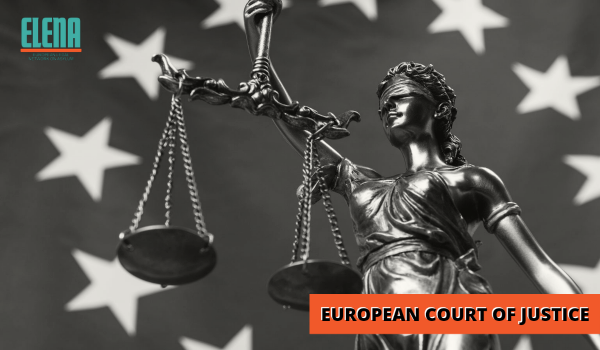On the 6th of July 2023, the CJEU ruled in its cases C-8/22, C-663/21 and C‑402/22, all of which concern revocation and/or refusal of refugee status. The case C-8/22 concerned XXX whose refugee status was withdrawn by Belgium due their conviction for aggravated theft and intentional homicide with a view to facilitating that theft or ensuring impunity. In case C-663/21, the refugee status of AA was withdrawn by Austria as he was convicted for the offences of wounding, dangerous and threatening behaviour, destroying or damaging the property of others and the unauthorised handling of drugs and drug trafficking. The case C-402/22 concerned M.A. whose application of international protection was refused because he was sentenced for three sexual assaults, an attempted sexual assault and the theft of a mobile telephone.
The CJEU first ruled in C-8/22 that the application of Article 14 (4) (b) of the Qualification Directive (rQD) is subject to two separate conditions, first, that the third-country national (TCN) has been convicted by a final judgment of a particularly serious crime and, secondly, that it has been established that that TCN constitutes a danger to the community of the Member State (MS) in which they are present. Regarding the latter requirement, the CJEU stated that it cannot be held that the fact that one of those two conditions has been satisfied is sufficient to establish that the other has also been satisfied. It follows that the existence of a danger to the community of a MS in which TCN is present cannot be regarded as established by the mere fact that they have been convicted by a final judgment of a particularly serious crime. The authorities have to establish that the threat which the TCN represents is genuine, present and sufficiently serious and that the revocation of refugee status constitutes a measure that is proportionate to that threat.
Regarding this proportionality assessment, the Court ruled in C-663/21 that the authorities are not required to verify that the public interest outweighs the protection interest of the TCN considering the extent and nature of the measures to which the TCN would be exposed if they were to be return to their country of origin. The CJEU stated however that a balance between the public interest danger and the right to protection of refugees must be made and that the consequences of return have to be considered when adopting a return decision. Additionally, the Court ruled that Article 5 of the Return Directive must be interpreted as precluding the adoption of a return decision for a TCN where it is established that removal to the intended country of destination is, by reason of the principle of non-refoulement, precluded for an indefinite period.
Regarding the afore-mentioned first requirement of Article 14(4)(b) rQD (conviction for a particularly serious crime), the CJEU held that the term ‘particularly serious crime’ must be interpreted as covering a crime which, in view of its specific features, is exceptionally serious, in so far as it is one of the crimes which most seriously undermine the legal order of the community. In order to assess whether a crime has such a degree of seriousness, account must be taken, inter alia, of the penalty provided for and the penalty imposed for that crime, the nature of that crime, any aggravating or mitigating circumstances, whether or not that crime was intentional, the nature and extent of the harm caused by that crime and the procedure applied to punish it.

